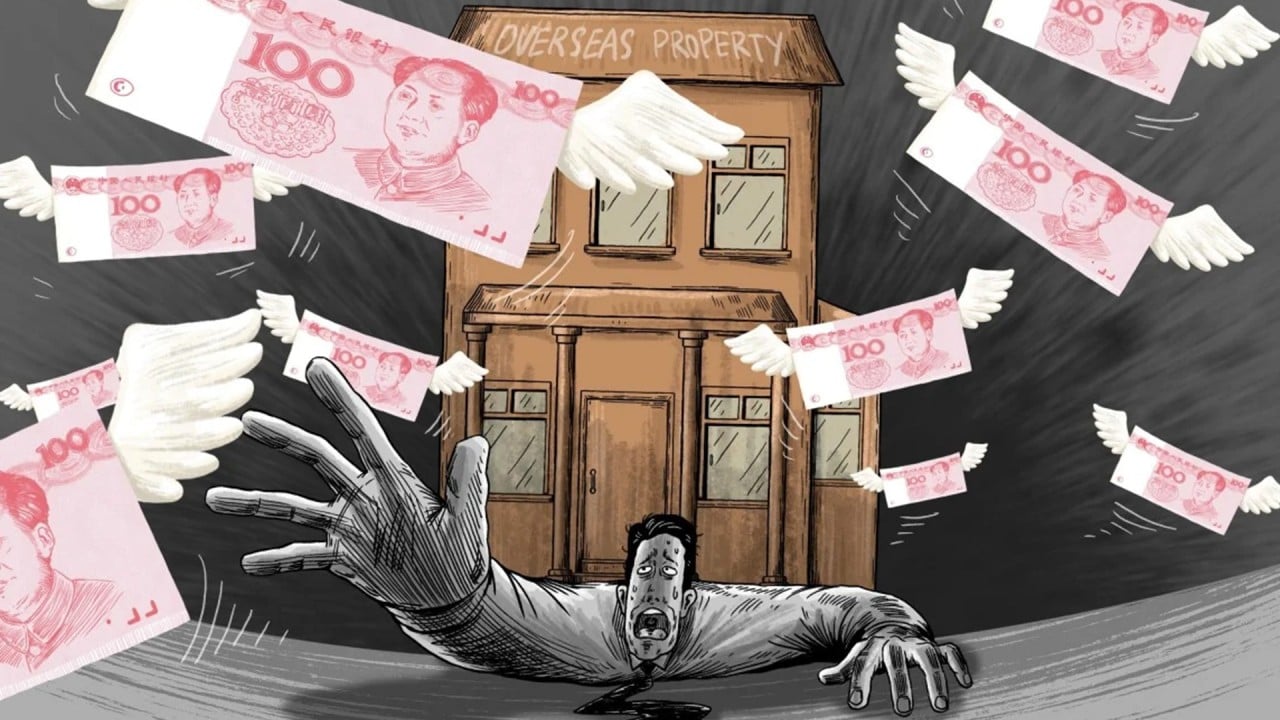
‘Chronic disappointment’: global funds make big cut in China stock allocation amid entrenched pessimism on economy, policies
- ‘Pessimism in China is all but entrenched now,’ survey shows. ‘Chronic disappointment’ has turned investors away from Chinese equities
- Expectations in Japan are even bolder, with more than a quarter anticipating double-digit returns in the next 12 months, by far the favourite market
Investors cut the amount of money set aside for Chinese equities by 12 percentage points to the lowest net underweight in more than a year, a reflection of the dire state of affairs, the January survey showed. Some 78 per cent of the survey respondents viewed a structural derating is underway versus about 50 per cent a year ago, justifying the shrinking market valuation.
The Hang Seng Index slumped 3.8 per cent in Wednesday trading, the most since a 6.4 per cent plunge in October 2022. The Hong Kong stock market’s benchmark has lost more than 10 per cent this year in its worst start to a year since 2016. Stocks in mainland China have also lost traction, with the CSI 300 Index trading near a five-year low.
“Pessimism in China is all but entrenched now,” the bank said in the report. “Chronic disappointment has turned investors away from Chinese equities.”
The BofA Asia fund survey involved 146 respondents including money managers at institutional firms, mutual funds and hedge funds overseeing US$319 billion of assets. The survey was conducted from January 5 to 11.
China has struggled to convince investors about its recovery momentum, having set lower growth targets after exiting from more than two years of pandemic. The central bank has refrained by flooding the market with liquidity, wary about knocking down the local currency, after engineering its rebound from a 17-year low.
Japan stocks’ sizzling run could slow an amid expected shift in monetary policy
“Chinese policymakers’ reluctance to stimulate meaningfully underscores that China is unlikely to be a meaningful source of growth for the global economy,” strategists at BCA Research said in a report. “It will take more economic pain to compel policymakers to cut interest rates.”
China’s central bank held its key policy lending rates on Monday, unchanged for a fifth straight month, after making a surprise cut in August. New loans, total social financing and money supply in December all came in below expectations, Goldman Sachs said, showing sluggish credit demand despite the accommodative policy stance.
M&G Investments, which manages US$386 billion of assets, said depressed valuation is creating a safety margin for investors.
“It’s definitely super cheap, and there’s a certain level of valuation support and reasonable earnings expectations baked into that valuation,” said Michael Dyer, investment director of the multi-asset team based in Hong Kong. “From a tactical point of view, possibly our highest conviction right now is Hong Kong and China equities. We are natural contrarians.”
Some 82 per cent of the money managers believed Chinese households would lock up their savings, instead of spending or investing the money. That’s up from 79 per cent in the Bofa survey in December. This suggests consumer deflation in China could persist in the near term.
Some 39 per cent of respondents in the BofA survey said they were looking for opportunities elsewhere, while 29 per cent said they were waiting for more credible signs of easing before adding more Chinese stocks in their portfolios.
“Expectations in Japan are even bolder, with more than a quarter anticipating double-digit returns in the next 12 months,” according to the BofA survey. “It is, by far, the favourite market in the region, as cited by net 59 per cent of investors, with a tilt towards semis and banks.”


